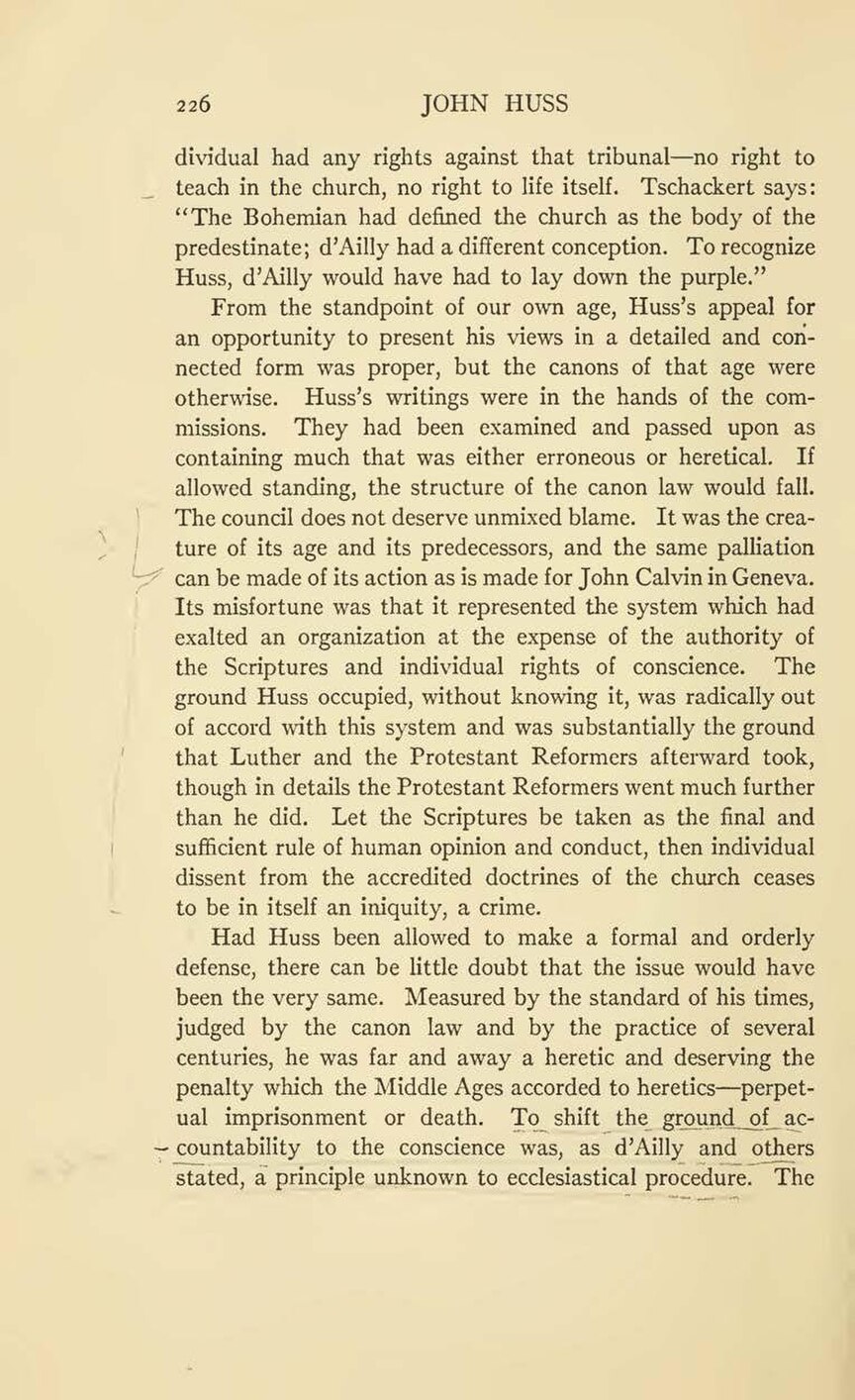dividual had any rights against that tribunal—no right to teach in the church, no right to life itself. Tschackert says: “The Bohemian had defined the church as the body of the predestinate; d’Ailly had a different conception. To recognize Huss, d’Ailly would have had to lay down the purple.”
From the standpoint of our own age, Huss’s appeal for an opportunity to present his views in a detailed and connected form was proper, but the canons of that age were otherwise. Huss’s writings were in the hands of the commissions. They had been examined and passed upon as containing much that was either erroneous or heretical. If allowed standing, the structure of the canon law would fall. The council does not deserve unmixed blame. It was the creature of its age and its predecessors, and the same palliation can be made of its action as is made for John Calvin in Geneva. Its misfortune was that it represented the system which had exalted an organization at the expense of the authority of the Scriptures and individual rights of conscience. The ground Huss occupied, without knowing it, was radically out of accord with this system and was substantially the ground that Luther and the Protestant Reformers afterward took, though in details the Protestant Reformers went much further than he did. Let the Scriptures be taken as the final and sufficient rule of human opinion and conduct, then individual dissent from the accredited doctrines of the church ceases to be in itself an iniquity, a crime.
Had Huss been allowed to make a formal and orderly defense, there can be little doubt that the issue would have been the very same. Measured by the standard of his times, judged by the canon law and by the practice of several centuries, he was far and away a heretic and deserving the penalty which the Middle Ages accorded to heretics—perpetual imprisonment or death. To shift the ground of accountability to the conscience was, as d’Ailly and others stated, a principle unknown to ecclesiastical procedure. The
